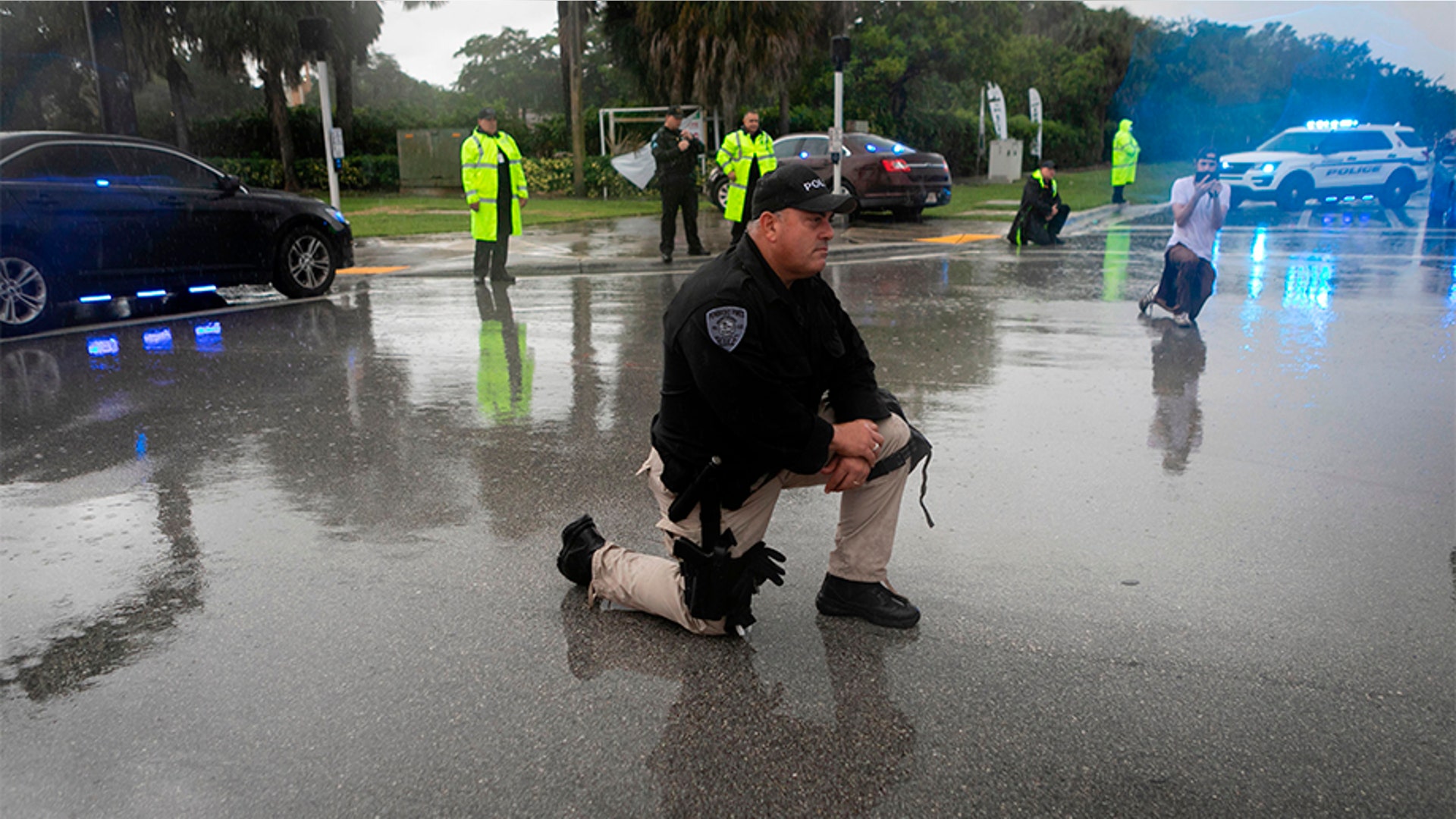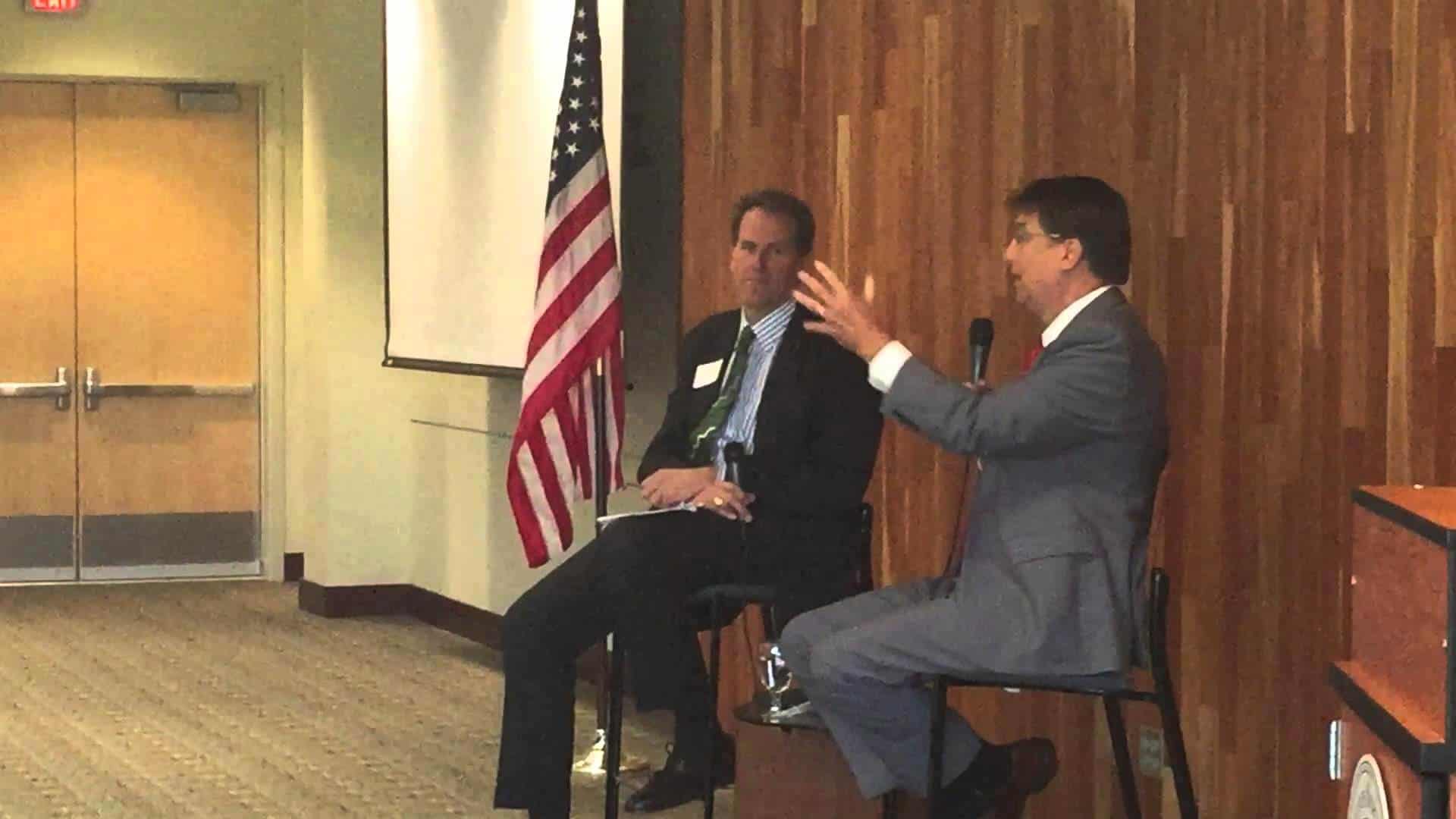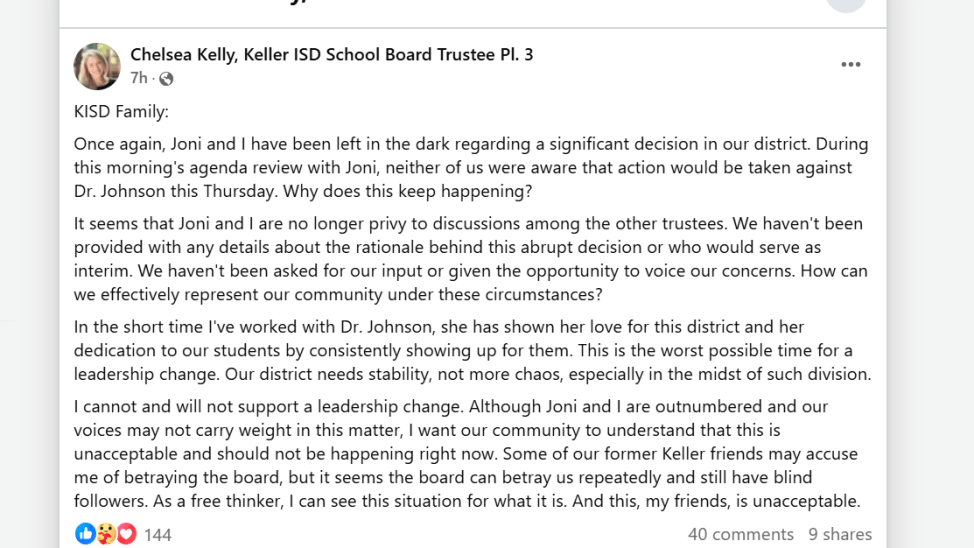FBI Reassigns Agents From Iconic George Floyd Protest Kneeling Photo

Table of Contents
The Controversial Photo and its Context
The photograph, widely circulated on social media and in news outlets, depicted several FBI agents kneeling alongside protestors during a demonstration following the death of George Floyd. The George Floyd protest was a pivotal moment in the national conversation about racial justice and police brutality, making the image itself incredibly powerful and instantly recognizable. The kneeling agents, a symbol of solidarity or perceived complicity depending on the viewer’s perspective, generated a firestorm of debate.
- Initial Public Reaction: Public reaction was sharply divided. Some praised the agents' display of empathy and solidarity with the protestors, viewing it as a sign of positive change within law enforcement. Others criticized the action, arguing that it was inappropriate for federal agents to participate in political demonstrations, potentially compromising their neutrality and undermining public trust in the FBI. A significant portion of the public felt the image was a powerful symbol of conflicting emotions during a turbulent time.
- Significance of the Photo: The photo quickly became a symbol – for some, representing a much-needed shift towards greater understanding and accountability within law enforcement; for others, a troubling sign of potential bias and political activism within the federal agency.
- FBI's Initial Statement: The FBI initially released a brief statement acknowledging the photo but refrained from explicitly commenting on the agents' actions or motivations.
The FBI's Decision to Reassign Agents
Following the release of the iconic kneeling photo, the FBI launched an internal review of the agents' conduct. This internal investigation ultimately led to the decision to reassign the agents. The precise reasons for the FBI reassignment remain somewhat opaque, but official statements alluded to a combination of factors.
- Reasons for Reassignment: The FBI cited concerns about potential violations of internal policy regarding political activity by federal employees and the need to maintain public trust and the agency's perceived neutrality. The controversy surrounding the photo significantly impacted public perception, and the reassignment was presented as a necessary step to address these concerns.
- Actions Taken: The agents were not formally disciplined or demoted in the traditional sense; instead, they were transferred to different roles and assignments within the FBI. The specifics of their new positions were not publicly disclosed.
- Timeline of Events: The investigation and subsequent reassignments unfolded over several months, highlighting the internal deliberation and sensitivity surrounding the matter.
- Investigations Launched: Besides the internal review, there's no public evidence suggesting external investigations were launched by other government bodies.
Impact on Public Perception and Law Enforcement
The FBI reassignment of the agents involved in the George Floyd protest photo had a significant impact, sparking considerable debate about public trust in law enforcement and the ongoing need for police reform.
- Impact on Public Trust: The reassignment's impact on public trust remains a complex issue. While some saw it as a necessary step to demonstrate accountability, others viewed it as an infringement on the agents' freedom of expression.
- Police Reform Efforts: The incident and subsequent reassignments added another layer to the already complex conversation about police reform and the need for increased accountability within law enforcement agencies. Some argued the reassignment demonstrated a willingness to address problematic behavior, while others criticized it as a symbolic gesture with little genuine impact on systemic issues.
- Racial Justice and Police Brutality: The entire episode unfolded amidst a broader national reckoning on racial justice and police brutality, making the George Floyd protest and the actions of the FBI agents particularly resonant.
- Similar Instances: While unusual in its high-profile nature, the incident is not entirely unprecedented. Law enforcement agencies across the country have occasionally disciplined or reassigned officers for actions perceived as controversial or violating agency policy.
Legal and Ethical Considerations
The case of the FBI reassignments raised crucial legal and ethical questions regarding freedom of expression, officer conduct, and the role of law enforcement in a democratic society.
- First Amendment Rights: The agents' actions raised questions about their First Amendment rights to freedom of speech and assembly. However, those rights are not absolute, especially for government employees, who are subject to restrictions on political activities.
- Freedom of Speech: Balancing freedom of speech for federal agents with the need for perceived neutrality within the agency is a challenge. The reassignments sparked a debate about the limits of free speech for those in positions of authority.
- Officer Conduct: The incident highlighted the ongoing discussion about appropriate conduct for law enforcement officers, particularly in the context of politically sensitive events.
- Arguments For and Against Reassignment: Arguments in favor of reassignment emphasized the importance of maintaining public trust and the agency's apolitical stance. Arguments against it highlighted concerns about potential chilling effects on freedom of expression for law enforcement officers.
Conclusion
The reassignment of FBI agents following the iconic kneeling photo during a George Floyd protest serves as a compelling case study in the intersection of law enforcement, public perception, and freedom of expression. The incident highlights the ongoing tensions surrounding police reform, racial justice, and the expectations placed upon those sworn to uphold the law. The complexities of the situation and the differing viewpoints it generated underscore the need for continued dialogue and thoughtful consideration of the issues involved. Understanding the nuances of this case is crucial for informed discussions about police reform and the evolving relationship between law enforcement and the communities they serve. Continue learning about the complexities of the FBI reassignments related to the George Floyd protests and contribute to the conversation by sharing this article.

Featured Posts
-
 Quick Look At Pasifika Sipoti April 4th Data
May 02, 2025
Quick Look At Pasifika Sipoti April 4th Data
May 02, 2025 -
 Early Childhood Investment A Foundation For Strong Mental Health
May 02, 2025
Early Childhood Investment A Foundation For Strong Mental Health
May 02, 2025 -
 Xrp Price Prediction Assessing The Impact Of The Sec Case Dismissal
May 02, 2025
Xrp Price Prediction Assessing The Impact Of The Sec Case Dismissal
May 02, 2025 -
 Kme Vedjegyes Baromfi Izelito A Mecsek Baromfi Kft Kivalo Minosegebol
May 02, 2025
Kme Vedjegyes Baromfi Izelito A Mecsek Baromfi Kft Kivalo Minosegebol
May 02, 2025 -
 Keller Isd Split Threat To Community Progress And Unity
May 02, 2025
Keller Isd Split Threat To Community Progress And Unity
May 02, 2025
